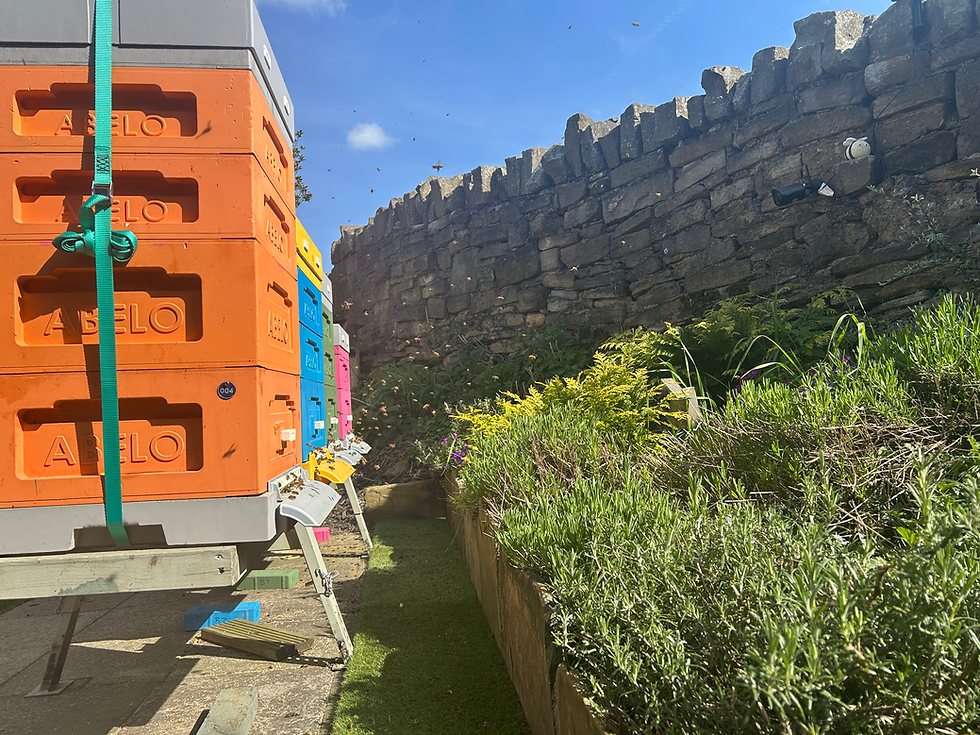Why Do Beekeepers Add Supers to Beehives? Here’s Why the Bees Need Them Too!
- dunnybees

- May 17, 2025
- 2 min read
At DunnyBees, we’re all about healthy hives and happy bees. One of the most important tools in a beekeeper’s toolkit is the super—but what exactly is a super, and why do beekeepers add them to hives? More importantly, how do bees benefit from them?
Let’s break it down.

What Is a Super?
A super is a box placed on top of a beehive that holds extra frames where bees can build comb and store honey. It’s called a “super” because it sits above the brood box (where the queen lays eggs and young bees are raised). Think of it as an attic space for honey storage!
There are two main types:
Shallow supers – lighter and easier to handle
Medium supers – a popular balance between size and weight
Why Beekeepers Add Supers
Honey Harvesting
Beekeepers want to collect honey without disturbing the brood (baby bees). By adding supers, bees store surplus honey in these upper boxes. This is the honey that can be safely harvested.

Prevent Swarming
Bees swarm when they run out of space. A crowded hive can trigger the bees to leave and form a new colony. Supers give them more room, which reduces the urge to swarm.

Hive Expansion
As the colony grows in spring and summer, more bees mean more need for space. Supers allow the hive to expand naturally, keeping bees productive and comfortable.

Better Hive Management
With clear separation between the brood area and honey storage, beekeepers can inspect and manage the hive more efficiently.

Why Bees Need Supers Too
It’s not just about the beekeepers—bees benefit from supers in several big ways:
Storage Space: A strong colony can make up to 60 pounds of honey in a good season! Without extra space, they’d be forced to stop producing or start looking for a new home.

Ventilation & Temperature Control: More room helps bees regulate hive temperature and humidity. This is crucial for both brood health and honey preservation.
Less Stress: Overcrowded hives lead to stressed-out bees. Stress weakens the colony and can invite pests or disease. Supers help maintain a calm, thriving environment.
The Bee-keeper’s Timing Trick
Timing is key! Beekeepers usually add supers in spring, when nectar flows begin and bees are ready to forage. Waiting too long can result in missed honey production—or worse, a swarm.
In a Nutshell:
Adding supers is a win-win. Beekeepers get more honey, and bees get the space they need to grow, store, and thrive. Whether you’re managing one hive or twenty, understanding the role of supers is a fundamental part of responsible beekeeping.
Stay sweet,
The DunnyBees Team







Comments